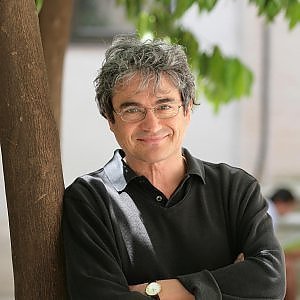 author
authorDiscover the Best Books Written by Michael Polanyi
Michael Polanyi was a Hungarian-British polymath who made important theoretical contributions to physical chemistry, economics, and philosophy. He argued that positivism supplies an imperfect account of knowing, as no observer is perfectly impartial. His wide-ranging research in physical science included chemical kinetics, x-ray diffraction, and the adsorption of gases.
He pioneered the theory of fiber diffraction analysis in 1921, and the dislocation theory of plastic deformation of ductile metals and other materials in 1934. He immigrated to Germany, in 1926 becoming a chemistry professor at the Kaiser Wilhelm Institute in Berlin, and then in 1933 to England, becoming first a chemistry professor, and then a social sciences professor at the University of Manchester.
Two of his pupils and his son John Charles Polanyi won Nobel Prizes in Chemistry. In 1944 Polanyi was elected to the Royal Society. The contributions which Polanyi made to the social sciences include an understanding of tacit knowledge, and the concept of a polycentric spontaneous order to the intellectual inquiry was developed in the context of his opposition to central planning.
In October 1918, Mihály Károlyi established the Hungarian Democratic Republic, and Polanyi became Secretary to the Minister of Health. When the Communists seized power in March 1919, he returned to medicine. When the Hungarian Soviet Republic was overthrown, Polanyi immigrated to Karlsruhe in Germany and was invited by Fritz Haber to join the Kaiser Wilhelm Institut für Faserstoffchemie (fiber chemistry) in Berlin.
In 1923 he converted to Christianity and, in a Roman Catholic ceremony, married Magda Elizabeth Kemeny. In 1926 he became the professorial head of the department of the Institut für Physikalische Chemie und Elektrochemie (now the Fritz Haber Institute). In 1929, Magda gave birth to their son John, who was awarded a Nobel Prize in chemistry in 1986. Their other son, George Polanyi, who predeceased him, became a well-known economist.
His experience of runaway inflation and high unemployment in Weimar, Germany, led Polanyi to become interested in economics. With the coming to power 1933 of the Nazi party, he accepted a chair in physical chemistry at the University of Manchester. Two of his pupils, Eugene Wigner and Melvin Calvin, went on to win a Nobel Prize. Because of his increasing interest in the social sciences, Manchester University created a new chair in Social Science (1948–58) for him.
Polanyi was among the 2,300 names of prominent persons listed on the Nazis' Special Search List, of those who were to be arrested on the invasion of Great Britain and turned over to the Gestapo. In 1944 Polanyi was elected a member of the Royal Society. On his retirement from the University of Manchester in 1958, he was elected a senior research fellow at Merton College, Oxford. In 1962 he was elected a foreign honorary member of the American Academy of Arts and Sciences.
Best author’s book




















